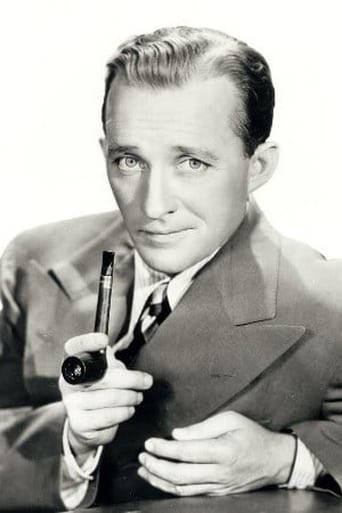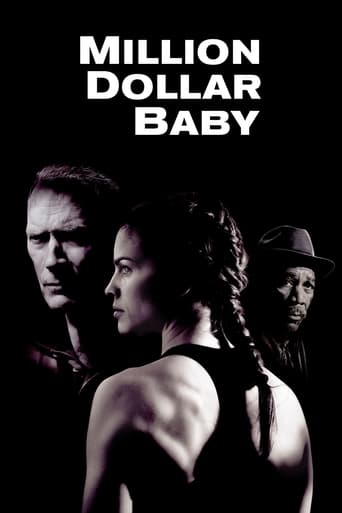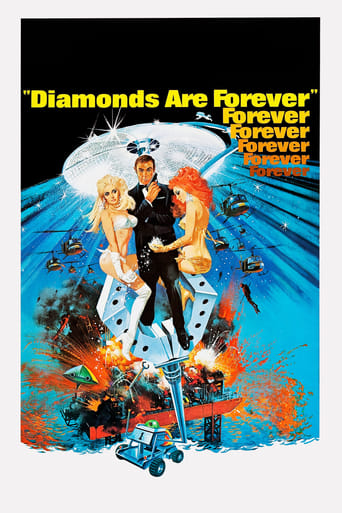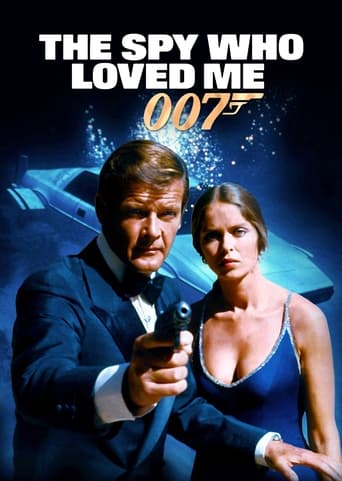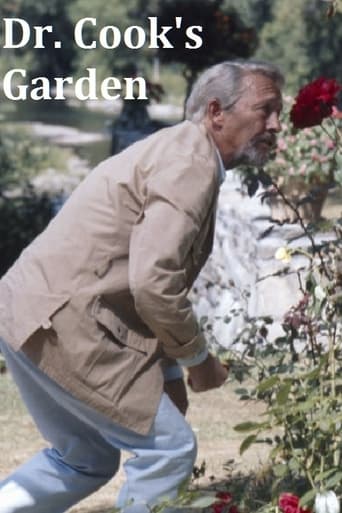
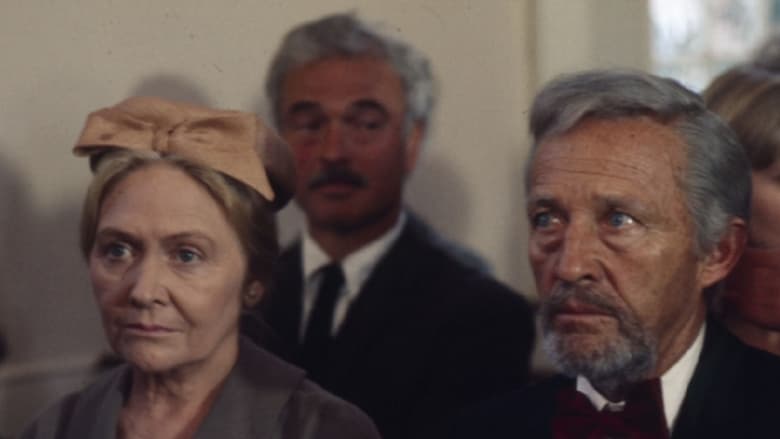
Dr. Cook's Garden (1971)
A young doctor returns to his New England home town after a long absence. He visits with the town's kindly old physician, Dr. Cook, a man he has admired since childhood. However, he soon finds out that the old doctor isn't quite what he seems to be, and the young doctor finds his life in danger.
Watch Trailer
Cast
Similar titles
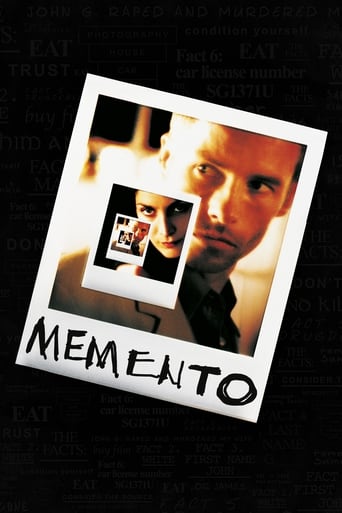
Reviews
Sorry, this movie sucks
When a movie has you begging for it to end not even half way through it's pure crap. We've all seen this movie and this characters millions of times, nothing new in it. Don't waste your time.
This is a must-see and one of the best documentaries - and films - of this year.
It’s sentimental, ridiculously long and only occasionally funny
A country doctor playing God in order to keep his quaint New England town practically perfect becomes an unforgettable late acting role for Bing Crosby who with a very trim figure and an imposing beard seems to be playing a part that might have fit Boris Karloff back in the 1930's or 40's. At times, he even resembles his old singing and dancing partner, Fred Astaire ("Holiday Inn"/"Blue Skies"), but until you hear his speaking voice, it's difficult to even realize that it is Bing Crosby, the all-American great crooner who dominated the pop charts in the 1930's and introduced many classic American songs. There's no singing for Crosby here, but his character better be singing "Nearer My God to Thee" as he deals with his conscience in taking the lives of some of the town's less likable citizens. As mentor to a young medical student (Frank Converse), he is thrilled with Converse returns for a visit, but it will be very difficult for both of them when Converse begins to investigate the sudden deaths of various patient's of Crosby's, including the town's recently deceased wealthy miser who wouldn't lift a finger to do anything to improve their community.A very beautiful Blythe Danner is an old classmate of Converse's, and the daughter of Crosby's latest patient/victim, an old man whose breathing problems lead to an obvious mercy killing. Converse sneaks into Dr. Cook's files and finds out the truth about his one letter reference system, meaning one thing allegedly for the beautiful flowery plants in his gorgeous garden, and another thing for his patients. Crosby utilizes his customary charm to make the character likable, but he holds back in other areas to give the character a little bit of sinister mystery which when it explodes reveals this character to be quite diabolical in a passive/aggressive manipulative way. Little bits of detail show other hypocrisies of small town living, especially a rather absurd church sermon where the preacher utilizes a rather judgmental comparison of other towns to this one, calling it practically perfect. But like Peyton Place, beautiful in the opening credits, all that glitters isn't always gladiolas, and like King's Row (another film where a doctor with a dark secret mentored a younger man), it is not necessarily the best place to raise your children, as the town sign in "King's Row" sign, that is, until a new doctor comes in to treat their patients correctly.
A very popular series of the time was 'Marcus Welby' where the all wise, all knowing doctor educated his patients out of their pride, prejudice, and folly in resisting his counsel. The doctor is wise. The doctor is all knowing. The doctor is only here to help. 1971, and indeed, the era of the Warren Court represented a high water mark of the notion that we can have a perfect society if we just turn loose experts and therapists guided by the social sciences on our problems. The intelligentsia then were absolutely certain of the ability of the social sciences to rehabilitate all criminals, to end poverty, to end racial inequality, to make a perfect land. All we had to do was use the tools of the social sciences to fix the 'root causes'.This film was a marvelous criticism of that zeitgeist. Dr Cook is the ultimate therapist. He is only there to help.
It is Bing Crosby's acting swan song, and a worthy one. Except for his brilliant recovering alcoholic stage star in THE COUNTRY WIFE, and an occasional display of anger in his other films (note his speech at Emperor Franz Josef about the puppies at the end of the THE EMPEROR WALTZ), Bing is always notable for his wonderful even temper. Dr. Cook gave him his chance of pulling out the stops.Burl Ives had played the role briefly on stage, and actually got good reviews (the play seemed too slight to the critics, and to New York audiences). The story is this: Frank Converse is Dr. Jimmy Tennyson, who is returning to his small home town to work with the man whom he always admired the most, Dr. Leonard Cook (Bing). Cook is the ideal small town doctor (reminiscent of his young doctor who goes to the New England Town to assist Barry Fitzgerald in WELCOME STRANGER). He is warm and kindly, and full of common sense. He also has a green thumb, being usually in his personal garden when not with his patients. So Converse is very happy to be working with his emotional/educational mentor.But in now working closer with Cook, Dr. Tennyson begins to notice that there are some odd deaths that accrue in the town. People will ask Cook to come in for some minor cold or something like that, and will be dead in twenty four hours. Tennyson soon begins to notice that the people who die so suddenly are not really mourned. His girlfriend, Janey Raustch (Blythe Danner), points out that many of them were notoriously bad tempered neighbors, cruel to their families or to pets or other people, or drunkards who made life hellish for others, and so they aren't missed. Eventually Tennyson starts questioning Cook, and after some attempts at shrugging off Tennyson's questions Cook begins to admit that the not-to-loved departed were possibly sped on their way with Cook's assistance.Tennyson is (naturally) astounded to hear that Cook has been poisoning (with overdoses of morphine and other drugs) these patients. Cook looks upon the town as a grander version of his garden, and these bad people as the equivalent of the weeds that he removes from his real garden.The tension is the story is how Tennyson finds the growing number of dead "bad" people affecting his own conscience, and how his uncertainty is effecting his relationship with Cook, who is beginning to wonder if Tennyson is another weed to remove.SPOILER COMING UP: Cook does go after Tennyson, but suffers a heart attack (his health has been in decline for awhile). As he is dying, Tennyson runs over with Cook's medication and can give it to him, but hesitates and realizes that Cook may not deserve to live if he is a murderer. Cook sees the hesitation, and (with a quiet irony) says to Tennyson that now he sees how really easy what Cook has been doing is. And Cook dies after saying this.Crosby acting sinisterly is quite a novelty for his fans, and his final moments include chasing Converse with intent to kill him. It was quite a performance, matched by Converse and Danner (who gradually realizes what Converse has discovered). This television film has not been shown in many years, but if it is revived one day catch it. It was Bing's last moment to shine on screen.
I'm sure that this was not intended to be Bing Crosby's swan song to feature films, but that's what it turned out to be.Crosby is cast against type here. He's the kindly old country doctor in this story who lives and practices in a Norman Rockwell like small town. But Crosby is the town's terrible secret. Unbeknownst to the residents, old Doctor Cook has been euthanizing those he feels have no positive contribution to make. The old mostly, but even younger ones like a crippled child whose medical bills are breaking his parent's finances. A young colleague, Frank Converse, discovers what he's doing and the rest you have to see for yourself.It's an interesting vehicle for a man who was known as THE Catholic entertainer. And it has Bing's one and only screen death in his career. Solid acting by Bing and the cast.
